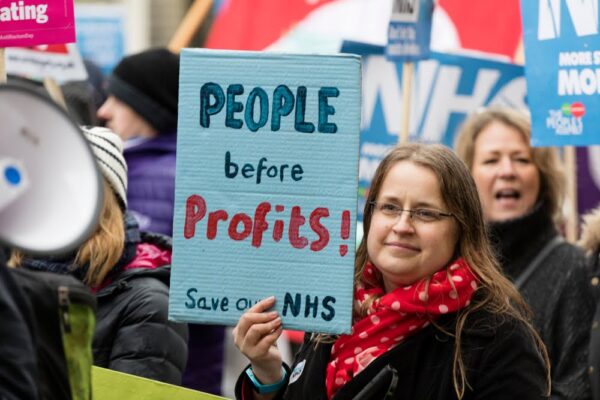
The company 18 Week Support specialising in insourcing in the NHS. Under contract with a hospital trust, 18 Week Support carries out elective surgery within NHS premises and using NHS infrastructure during what is normally theatre downtime, such as weekends and bank holidays. The company employs NHS staff working on their days off. The company reports that it has relationships with over 80 NHS hospital trusts.
Last updated: January 2025
Strategy
18 Week Support is one of the UK's leading provider of managed insourcing clinical services. It was founded in 2019 by Alexander Chilvers, but he resigned in September 2022. The company now has four officers, 3 directors and company secretary. 18 Week Support conducts elective surgery for the NHS within NHS premises during times when theatres are not being used by the NHS, such as at weekends.
For details of how insourcing works see Insourcing – how private companies work inside NHS hospitals
One of the company's core services is endoscopy, but it is also involved in general surgery, ophthalmology and gynaecology procedures.
In the company's annual accounts to March 2024, it highlights the growing NHS waiting list, which means demand for its services will continue to grow.
Financials
The company's most recent accounts for the year to end March 2024 show a turnover of £64.15 million, up from £66.5 million in the year to March 2023, leading to a post-tax profit of £8.53 million, up from £8.11 million in the previous financial year.
All the company's turnover is generated from the NHS.
Contracts
18 Week Support is on the national framework agreement in place, Insourcing of Clinical Services, with NHS Shared Business Services listing 40 companies. These companies have already gone through a competitive tendering procedure to be put on the list and can be used by trusts without additional contract tendering. The framework began back in 2018 and runs until July 2027.
18 Week Support reports that it works with over 80 NHS organisations, with its customer base expanding continually. In the year to March 2023, the company reported it delivered 53,700 clinical days.
Concerns
There are concerns over the process of insourcing, rather than individual companies.
Workforce availability affected
There are already signs that private companies are trying to fudge the system leading to issues with workforce availability. In January 2022, NHS England and NHS Improvement had to send out guidance after it became aware that several staffing agencies were approaching NHS trusts offering insourcing solutions that were just providing staff at an escalated rate of pay.
These insourcing solutions have included “the provision of individuals or teams of clinical and medical staff who are paid at an escalated rate above the NHS England and NHS Improvement price caps” and who are engaged through a staffing agency not on the insourcing framework.
The use of escalated pay rates attracts workers from elsewhere in the NHS, which in turn reduces the supply of agency workers available to fill shifts in the trust and wider health system. It also has “a ripple effect on general agency rates, as it raises the pay expectations of agency workers, and forces other departments and trusts to increase their rates to attract their workers back.”
Conflict of interest issues
The Centre for Health and the Public Interest (CHPI), an independent thinktank, has called for a ban on such arrangements between insourcing companies led by consultants and the trust they are employed by. The General Medical Council said current conflict of interest policies did not always deliver “the transparency and assurance that patients rightly expect”.
The trusts say all rules were followed and interests were publicly disclosed and managed appropriately.
Alan Clamp, chief executive of the Professional Standards Authority, which oversees regulation of health professionals in the UK, called for a cross-sector review of managing conflicts in healthcare and urged regulators and employers to “tackle business practices” that “risk undermining public confidence”.
David Rowland, director of the CHPI, said the current rules were “woefully weak” and called for a ban on arrangements of the sort identified by the Observer.








